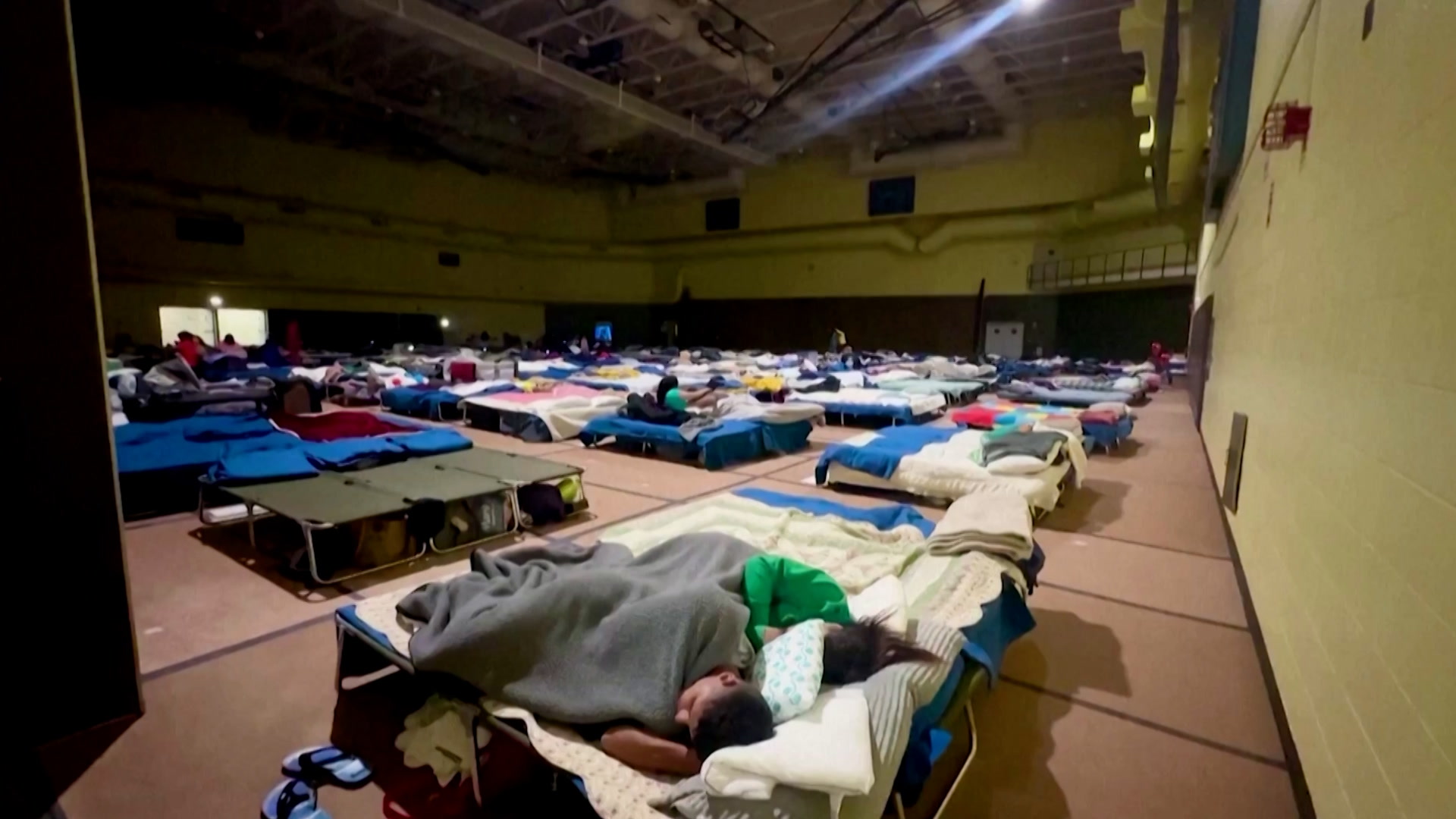COVID-19 is more deadly for some ethnic groups

Image: REUTERS/David Ryder - RC200G92LWBF

Get involved with our crowdsourced digital platform to deliver impact at scale
Stay up to date:
Human Rights
- The disproportionate impact of the pandemic on African-Americans in much of the US is becoming clearer.
- Evidence points to a similar deadly disparity in the UK.
- Some of the reasons relate to complex social inequalities, making it more urgent than ever to address them.
When former US President George W. Bush recently urged Americans to unite in the face of COVID-19, he described everyone as “equally vulnerable.” But COVID-19 hasn't had an equal impact on all Americans.
A growing number of individual states have begun publishing COVID-19 data by race, including information on mortality rates.
As more data accumulates, a glaring gap in terms of the pandemic’s toll has become apparent.
”In many places, COVID-19 is killing a vastly disproportionate number of African-Americans – and adding yet another troubling aspect to what might be a second wave of coronavirus cases for the country.
Have you read?
In several states, the percentage of reported COVID-19 deaths so far attributed to African-Americans is not only greater than their share of the state population – it is more than double. In Kansas, for example, African-Americans account for nearly a third of reported COVID-19-related deaths but just 6% of the state population, in Michigan they account for 41% of reported deaths and 14% of the population, and in Illinois they account for nearly 34% of reported deaths and less than 15% of the population.

Experts point to a number of reasons for the imbalance. The underlying health conditions (such as diabetes) that put people at higher risk for severe illness from COVID-19 tend to be more common among African-Americans. African-Americans also tend to be prominent in many public-facing occupations that require them to show up at work every day despite the pandemic, therefore putting them at greater risk.
It’s not just the US where COVID-19 appears to be exacting a disparate death toll. According to a report published recently by London-based think tank The Institute for Fiscal Studies, there are growing concerns that some ethnic groups in the United Kingdom are being disproportionately affected. The report includes alarming data showing that COVID-19 hospital deaths per 100,000 in England for British people of black Caribbean background have been roughly three times the number for the white British population.

The pandemic also appears to be having a disproportionate impact on Bangladeshi, Black African and Pakistani populations in the UK, according to the report. One explanation offered for this sounds similar to the dynamic cited in the US – many people from these groups are key workers who have had to remain on the frontlines of keeping health systems and economies running.
For more context, here are links to further reading from the World Economic Forum’s Strategic Intelligence platform:
- People of colour in the US make up the bulk of a warehouse and temporary workforce, active in crowded environments during the pandemic – a large proportion of which doesn’t qualify for COVID-19-related paid sick leave provided by federal legislation, according to this report. (ProPublica)
- The coronavirus placed a magnifying lens over deep inequities in American society. Now, the country has an opportunity to face longstanding injustices without just patching over them with emergency measures, according to this analysis. (Stanford Social Innovation Review)
- “Most epidemics are guided missiles attacking those who are poor, disenfranchised and have underlying health problems,” according to a doctor quoted in this report. (Kaiser Health News)
- If terrible challenges can expose the US’s weaknesses and self-inflicted wounds, they can also clarify its path forward, according to this former US deputy secretary of state. (Carnegie Endowment for International Peace)
- The UK’s NHS relies on immigrants to function. But this has not stopped them from being used as scapegoats, nor has it protected them from hostile environments that direct fear and anger at ethnic minorities, according to this analysis. (LSE)
- London’s drivers have demanded assistance on how to best protect themselves from COVID-19 after a number died from the disease – including Bangalore-born Rajesh Jayaseelan, whose story went viral, according to this report. (CityMetric)
- Evidence from a recent survey cited in this analysis suggests a majority of the British public would support giving permanent residency to the immigrants and EU nationals who have been serving as frontline health workers during the crisis. (LSE)
On the Strategic Intelligence platform, you can find visualizations and feeds of expert analysis related to COVID-19, the US and hundreds of additional topics. You’ll need to register to view.
Don't miss any update on this topic
Create a free account and access your personalized content collection with our latest publications and analyses.
License and Republishing
World Economic Forum articles may be republished in accordance with the Creative Commons Attribution-NonCommercial-NoDerivatives 4.0 International Public License, and in accordance with our Terms of Use.
The views expressed in this article are those of the author alone and not the World Economic Forum.
Related topics:
The Agenda Weekly
A weekly update of the most important issues driving the global agenda
You can unsubscribe at any time using the link in our emails. For more details, review our privacy policy.
More on Human RightsSee all
John Letzing and Minji Sung
April 9, 2024
Marie McAuliffe
April 8, 2024
Liam Coleman
March 7, 2024
Kate Whiting
July 12, 2023
Christa Odinga-Svatenson and Diana Alvarez
June 20, 2023







